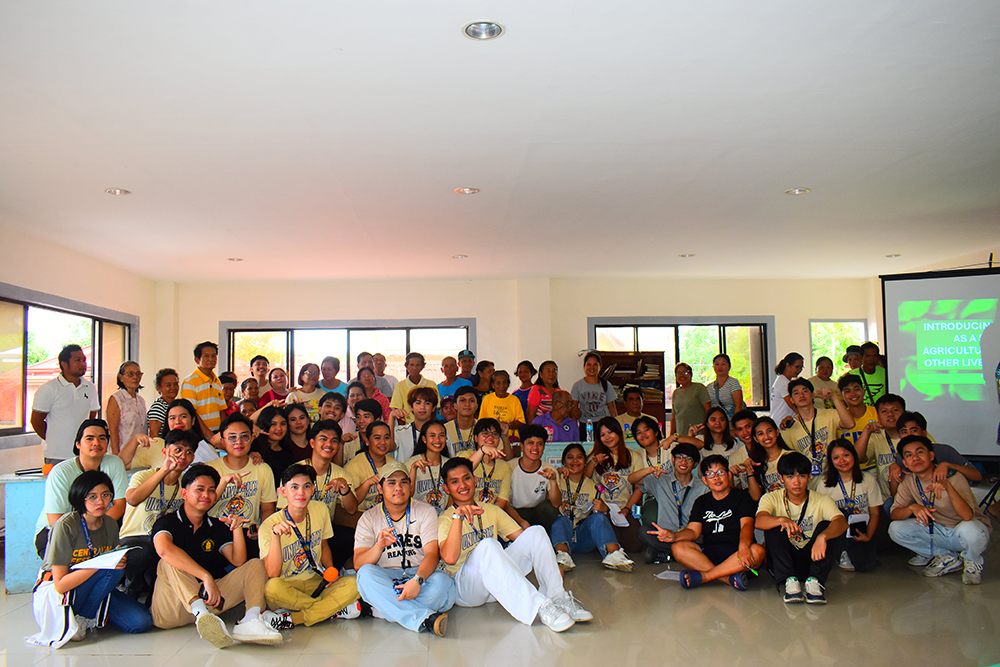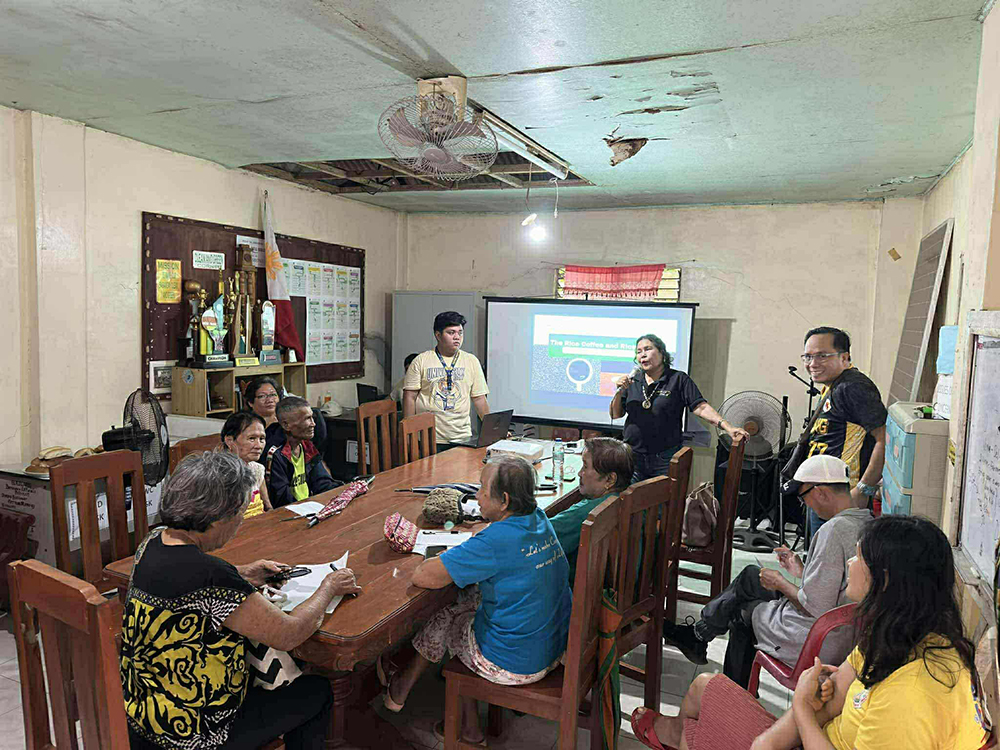By Raidenson M. Tumilba
Culasi Farmers and Brgy. Officials joined forces with the dedicated students and faculty of CPU-CARES for a memorable gathering and a heartfelt group photo that captured the spirit of community collaboration.
The College of Agriculture, Resources, and Environmental Sciences (CARES) under the deanship of Dr. Jaime Cabarles, Jr, together with the CARES-CESL Coordinator, Dr. Joyce Wendam, resumed its outreach activities by introducing the Palayamanan Project as a sustainable farming livelihood as well as a business plan proposal in Barangay Badiang, New Lucena, and Barangay Culasi Ajuy, Iloilo, last September 22 and September 24, 2025, respectively.
Palayamanan (palay at kayamanan), which means ‘wealth derived from rice-based farming,’ is designed to maximize the utilization of land, water, and human resources by integrating crops, livestock, fisheries, and other income-generating activities. This system not only ensures food security but also provides multiple sources of livelihood for farmers, leading to sustainable rural development. Farmers were introduced to various implementation phases of the project, such as integrated rice production and organic vegetable production.
The introduction of the Squash Chips and Noodles business plan in Brgy. Culasi and the Rice Wine and Rice Coffee business plan in Brgy. Badiang served as an example of a value-adding business that can promote livelihood opportunities for farmers and their families. Beyond production, the project also emphasizes capacity building, providing training programs for knowledge transfer, establishing market linkages at the local and regional levels, and strengthening partnerships with NGOs and the private sector.
Dr. Joyce S. Wendam, CARES-CESL Coordinator, and Mr. Joshua Ortega, 4th-year CPU-CARES student, proudly presented the business plan as well as the Palayaman project proposal to the farmers of Brgy. Badiang, New Lucena.
The proposed Palayamanan Project and business plan in Brgy. Badiang, New Lucena, and Brgy. Culasi and Ajuy stem from previous consultations and will address the critical issues of low farm income and unsustainable farming practices by introducing a diversified, integrated, and climate-resilient approach. This Project will advance the Sustainable Development Goals (SDGs) of the United Nations, where:
- SDG 1 (No poverty): This project promotes poverty reduction, which falls under SDG 1.
- SDG 2 (Zero hunger): This project promotes food security, which falls under SDG
- SDG 8 (Decent work and economic growth): This project promotes agripreneurship and job creation, which fall under SDG 8.
- SDG 12 (Responsible Consumption and Production): This project promotes sustainable production, which falls under SDG 12.
- SDG 13 (Climate Action): This project addresses climate change issues, which fall under SDG 13.
- SDG 17 (Partnerships for the Goals): This project promotes strong partnerships with the government and other private sectors, which fall under SDG 17.
By enhancing farmer capabilities, connecting them to markets, and adopting sustainable technologies, the project aims to increase productivity, enhance farmer resilience, and uplift community well-being. This project serves as a model for sustainable agriculture that can be scaled up and replicated across the Philippines. With sufficient support, it can empower farming households to become self-sufficient, resilient, and prosperous. This initiative aligns with the well-established Palayamanan model from PhilRice, designed to empower smallholder communities through innovation and multi-resource agriculture.


